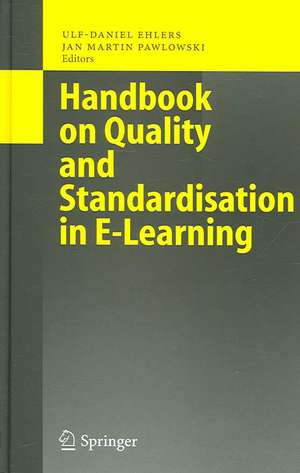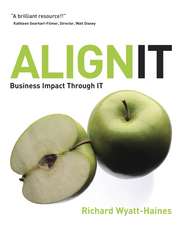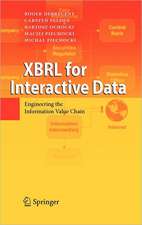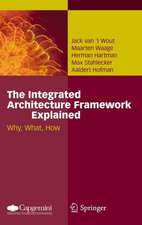Handbook on Quality and Standardisation in E-Learning
Editat de Ulf-Daniel Ehlers, Jan Martin Pawlowskien Limba Engleză Hardback – 20 iul 2006
For building a knowledge society, it is critically important to thoroughly understand quality and standards in e-learning. The handbook provides a cross-national perspective on these issues and draws a clear picture of the situation in quality development and standardisation. It covers topics of a rather foundational nature in quality and standardisation research as well as descriptions of quality approaches, instruments, standards, experiences and best practices. The Handbook is directed to learners, professionals, researchers and policy makers – people creating the next generation of learning.
| Toate formatele și edițiile | Preț | Express |
|---|---|---|
| Paperback (1) | 1230.84 lei 6-8 săpt. | |
| Springer Berlin, Heidelberg – 30 noi 2010 | 1230.84 lei 6-8 săpt. | |
| Hardback (1) | 1235.08 lei 6-8 săpt. | |
| Springer Berlin, Heidelberg – 20 iul 2006 | 1235.08 lei 6-8 săpt. |
Preț: 1235.08 lei
Preț vechi: 1506.20 lei
-18% Nou
Puncte Express: 1853
Preț estimativ în valută:
236.33€ • 247.41$ • 195.55£
236.33€ • 247.41$ • 195.55£
Carte tipărită la comandă
Livrare economică 05-19 aprilie
Preluare comenzi: 021 569.72.76
Specificații
ISBN-13: 9783540327875
ISBN-10: 3540327878
Pagini: 596
Ilustrații: XX, 574 p.
Dimensiuni: 155 x 235 x 37 mm
Greutate: 0.94 kg
Ediția:2006
Editura: Springer Berlin, Heidelberg
Colecția Springer
Locul publicării:Berlin, Heidelberg, Germany
ISBN-10: 3540327878
Pagini: 596
Ilustrații: XX, 574 p.
Dimensiuni: 155 x 235 x 37 mm
Greutate: 0.94 kg
Ediția:2006
Editura: Springer Berlin, Heidelberg
Colecția Springer
Locul publicării:Berlin, Heidelberg, Germany
Public țintă
ResearchCuprins
Quality in European e-learning: An introduction.- Quality in European e-learning: An introduction.- Quality in a Europe of diverse systems and shared goals.- Quality in a Europe of diverse systems and shared goals.- European quality development: Methods and approaches.- Quality of e-learning: Negotiating a strategy, implementing a policy.- The maze of accreditation in European higher education.- Adopting quality standards for education and e-learning.- Process-oriented quality management.- An analysis of international quality management approaches in e-learning: Different paths, similar pursuits.- The quality mark e-learning: Developing process- and product-oriented quality.- Competency-based quality securing of e-learning (CQ-E).- Quality of e-learning products.- Quality evaluation for e-learning in Europe.- Towards a model for structuring diversity: Classifying & finding quality approaches with the EQO model.- E-learning standards.- The standards jungle: Which standard for which purpose?.- Architectures and frameworks.- Content and management standards: LOM, SCORM and Content Packaging.- Educational interoperability standards: IMS learning design and DIN didactical object model.- Developing and handling learner profiles for European learner information systems.- Improving European employability with the e-portfolio.- Interface standards: Integration of learning and business information systems.- Facilitating learning objects reusability in different accessibility settings.- Out of the past and into the future: Standards for technology enhanced learning.- Fields of practice and case studies.- Organisational and cultural similarities and differences in implementing quality in e-learning in Europe’s higher education.- Rethinking quality for building a learningsociety.- Myths and realities in learner oriented e-learning-quality.- The e-learning path model: A specific quality approach to satisfy the needs of customers in e-learning.- Pedagogic quality — supporting the next UK generation of e-learning.- Quality in cross national business models for technology based educational services.- E-learning quality and standards from a business perspective.- A framework for quality of learning resources.- LearnRank: Towards a real quality measure for learning.- Quality of e-learning in tertiary education: Managing a balance between divergence and convergence.- Best practices for e-learning.
Caracteristici
State of the art of current questions and discussions around the field of quality in E-learning Concise overview on the field of quality research which can be used for teaching purposes With examples of quality and standards and practice













